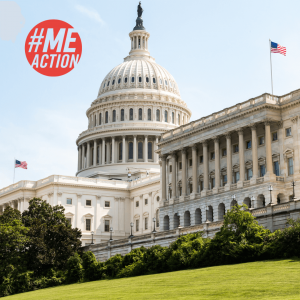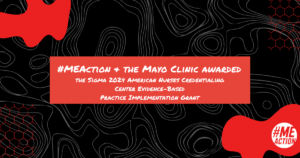COVID-19 has significantly changed our lives in so many ways. With the recent increase in funding to study long COVID, there is understandably mixed-feelings in the ME community. While everyone wants those with long COVID to have the success people with ME so desperately deserve, for some, there is a fear of ME being lost in the search for answers for long COVID.
#MEAction has worked hard to make sure that people with ME are not lost in the narrative of long COVID, and those newly diagnosed with ME or comorbid conditions after having COVID get the care they need. Our goal is that by joining together, with those experiencing long COVID symptoms, and with those with comorbid conditions, will help us all- that together, we can all get the care and research needed to make all of this suffering history. It’s why we launched the #StopRestPace campaign. It’s why we’ve urged NIH to accelerate ME research, renew funding for and expand the number of CRCs, and catalyze necessary clinical treatment trials. And it’s why we joined in coalition with 20 other organizations to provide recommendations regarding the 2020 COVID relief package in December.
Now, #MEAction and 10 other ME organizations wrote an additional letter to congress asking them to study very specific aspects of long COVID drawing upon the combined knowledge and expertise the ME community brings to these issues. We know this is crucial, and we are not wasting any time.

Congressional Letter
#MEAction joined 10 other ME organizations including Solve M.E., Open Medicine Foundation, Institute for Neuro-Immune Medicine Nova Southeastern University, Bateman Horne Center, Simmaron Research, Whittemore Peterson Institute, Pandora, Minnesota ME/CFS Alliance, Florida ME/CFS Patient United, and Massachusetts ME/CFS & FM Association, to urge Congress to consider additional priorities for the upcoming federal 2021 COVID-19 relief package to continue building on the momentum of the $1.15 billion investment announced in December. Our hope is that these broad requests will be a start in the allocation of funding to the research priorities our community has been asking for.






